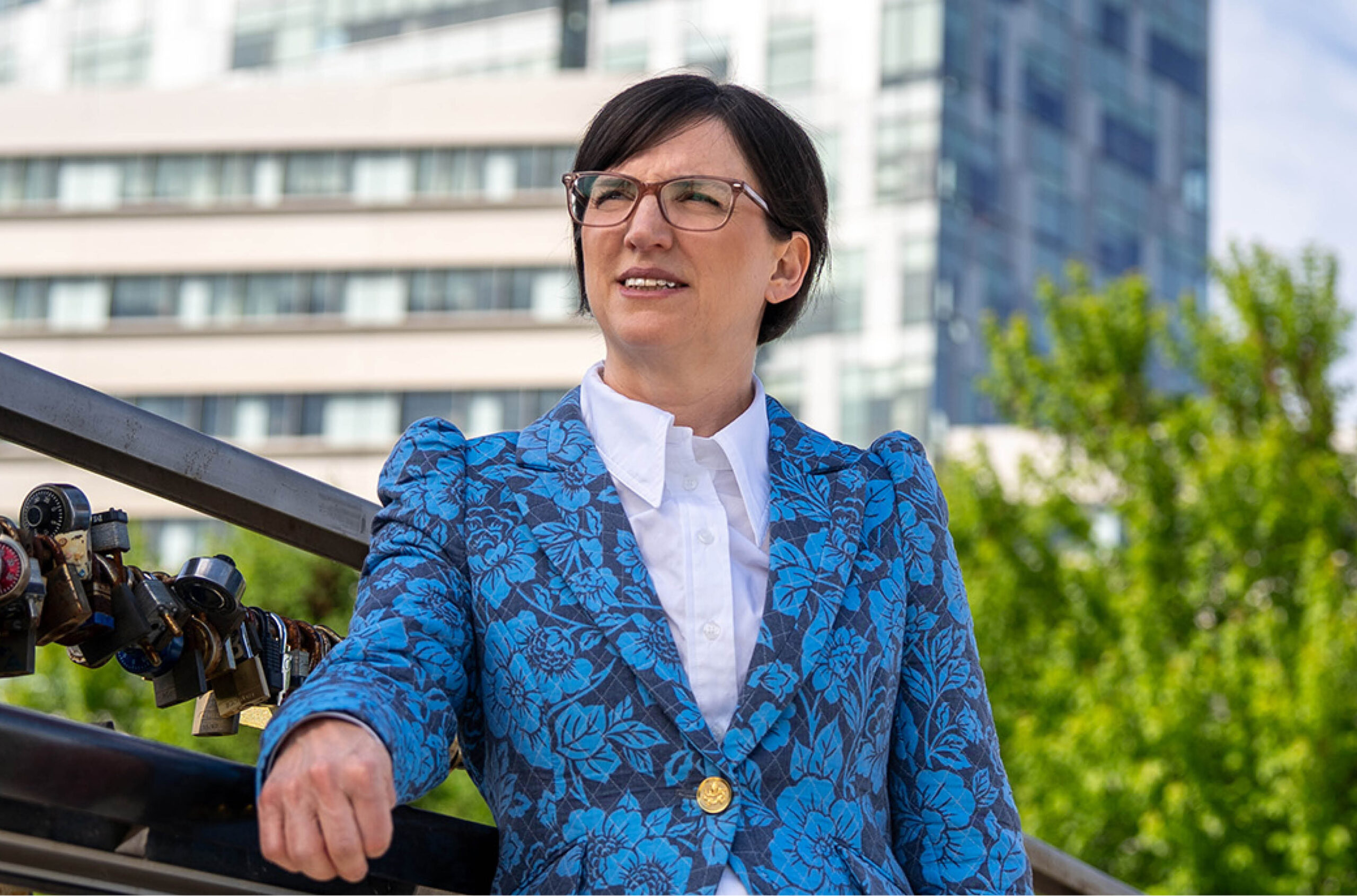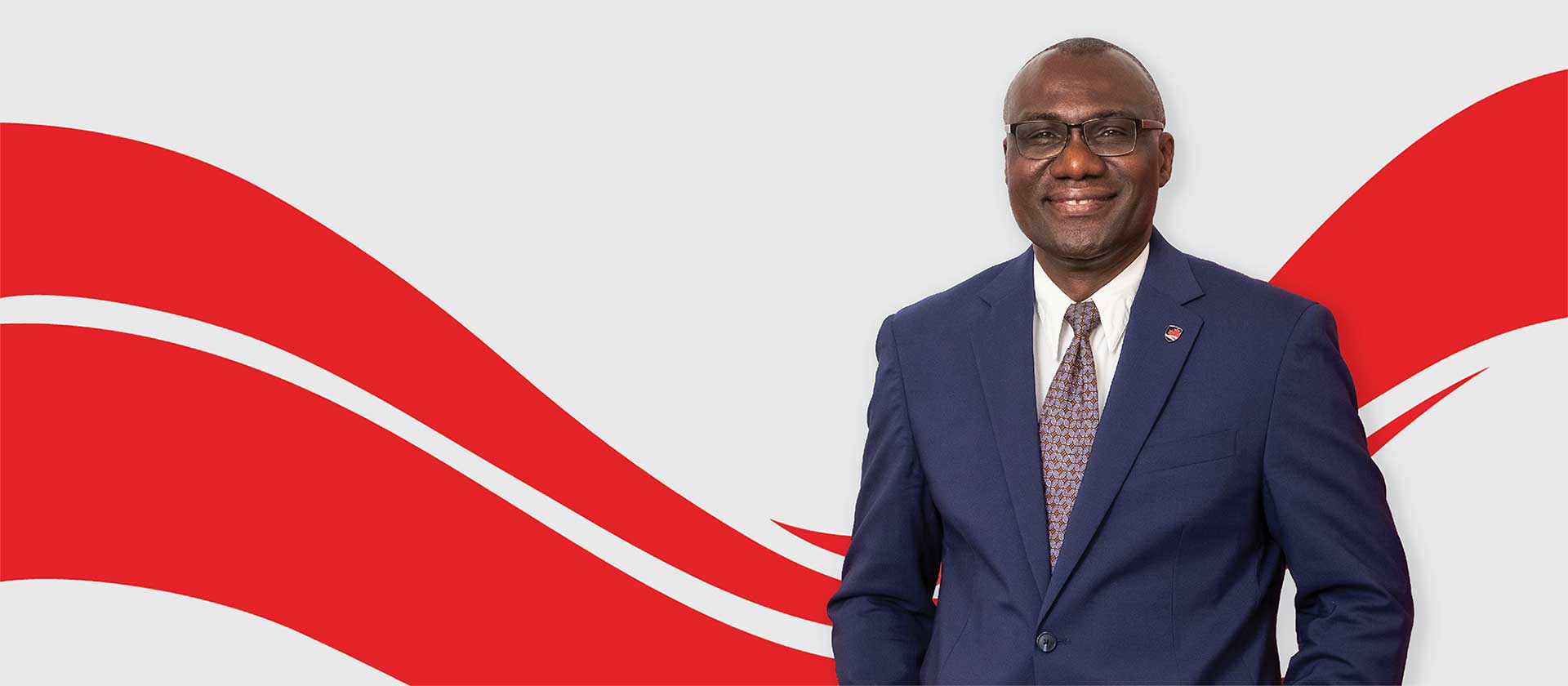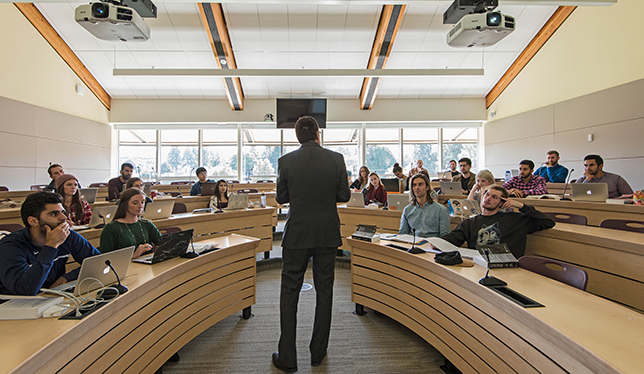Astrophysicist takes a fresh look at the universe
CIFAR Azrieli Global Scholar uses “multimessenger” astronomy for new insights, while pushing for more diversified and inclusive viewpoints.

Astronomy is a complex subject, but Daryl Haggard has the rare talent of bringing it down to earth. Her descriptions of neutron star collisions and merging black holes are as clear as they are colourful, inviting her audience to learn more about what’s happening in the farthest reaches of outer space.
That’s to be expected: while she’s currently contributing to revolutionary new space research, the McGill University assistant professor of physics and CIFAR Azrieli Global Scholar devotes a fair share of her time to educating others about the latest findings in her most awe-inspiring profession.
Dr. Haggard grew up in Santa Fe, New Mexico, the fifth of eight children born to a mathematician-philosopher father and a biologist mother. Entering university at 16, she enrolled in philosophy but soon fell in love with astrophysics. “We read Newton’s Principia — a classic text where he describes a lot of the formalism we use to describe gravity and its applications to the field. I got very excited and decided that was probably what I’d like to pursue later on,” she says.
After some interesting detours (teaching English in China, working for a publishing company in Silicon Valley), Dr. Haggard completed her master’s and PhD at the University of Washington, as well as a postdoctoral fellowship at Northwestern University. She then taught astronomy for one year at Amherst College in Massachusetts, before moving to Canada to assume her current position at McGill.

Like all those engaged in fundamental research, Dr. Haggard is primarily driven by the need to understand natural phenomena. Astronomy is especially rewarding in this regard, as new discoveries are being made every day. “A hundred years ago, people didn’t even know there was a galaxy outside of our Milky Way,” she says. “Since then we’ve taken huge strides, and those strides really do have a huge cultural impact.”
These days, Dr. Haggard is especially excited about the modern era of “multimessenger” astronomy. Until recently, astronomers could only derive valuable information about the universe by studying electromagnetic radiation. But technology now supplies them with many other sources. Cosmic rays, neutrinos, and gravitational waves now combine to provide clues about the strange and violent processes taking place at distances that are practically unimaginable.
Last year, the U.S.-based LIGO-Virgo observatories detected a neutron star collision via gravitational wave that was rapidly also discovered with light. Immediately, 3,000 astronomers set to work analyzing the find, including a team led by Dr. Haggard at McGill that detected X-ray emission from a violent outflow associated with the event.
It’s a finding she describes as “wildly exciting,” since more information means more proof for existing theories. One of these theories is that many of the precious metals on Earth — such as gold and platinum — result from fusion reactions in neutron star collisions.
Outside the lab, Dr. Haggard’s efforts as an advocate for inclusion and diversity in her field have also been impressive. She’s twice visited Capitol Hill to argue for increased support for STEM research and education; has been active in efforts to advance the position of women in astronomy; and has mentored disadvantaged students through school-based outreach programs such as Reach for the Stars.
“New ideas matter,” she says. “The most profound insights come from people who come at problems from a variety of perspectives. We need to think about changing workplace culture, and about the implications of keeping an entire subset of children away from science based on gender, race or socioeconomic status.”
This year, Dr. Haggard’s work has been deeply enriched by the wide array of scientific viewpoints she regularly encounters through her work as a CIFAR Azrieli Global Scholar.
“The program is wonderful, in that it helps us overcome barriers between disciplines and puts us in touch with the most brilliant people around the world,” she says. “It’s also giving me the opportunity to interact with so many people in the early-career stage. That kind of peer support is really fantastic, and it’s great to get it from departments different from mine. It’s a community that is truly unique.”

This post is sponsored by the Canadian Institute for Advanced Research Azrieli Global Scholars program, which provides funding, mentorship and support to help early career researchers build their networks and develop essential skills. The program is part of CIFAR, which brings together outstanding researchers from across disciplines and borders to address important challenges facing the world. To learn more about the program and how to apply, please visit www.cifar.ca/global-scholars




Post a comment
University Affairs moderates all comments according to the following guidelines. If approved, comments generally appear within one business day. We may republish particularly insightful remarks in our print edition or elsewhere.